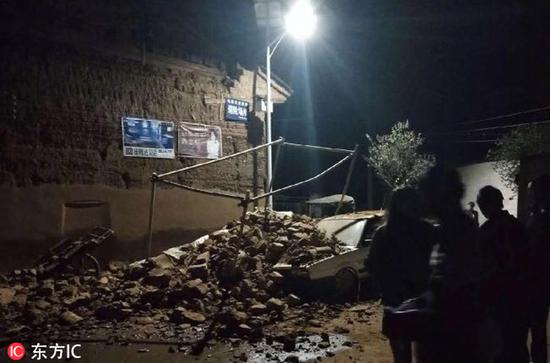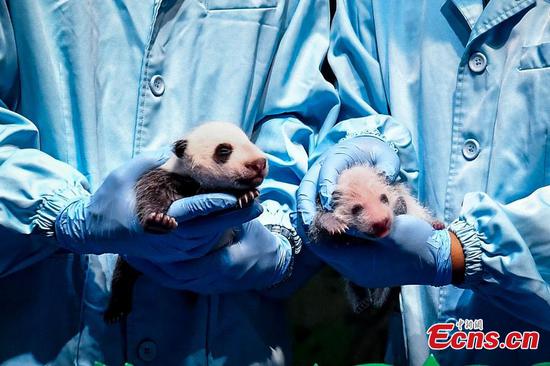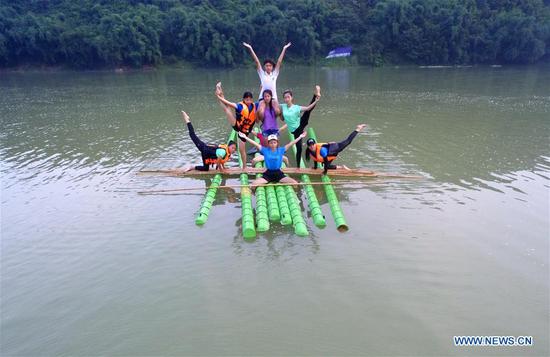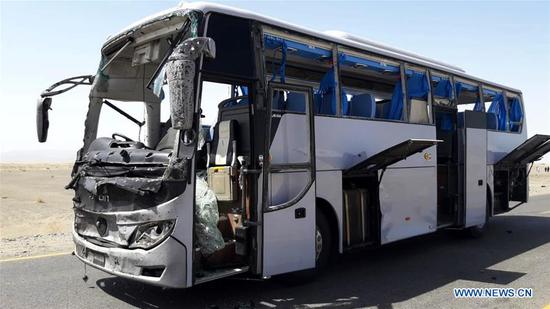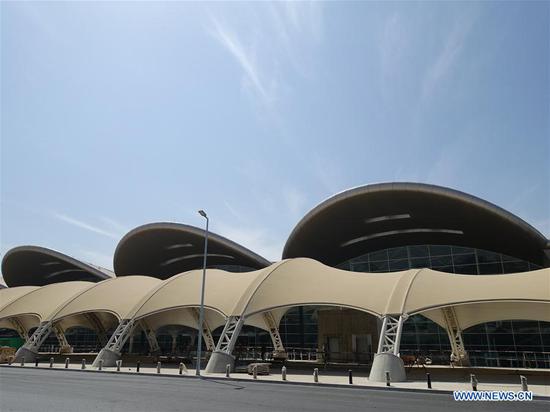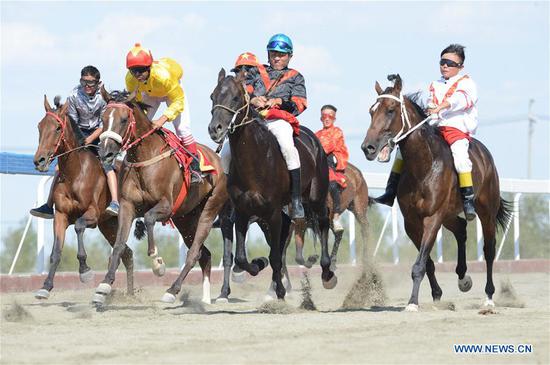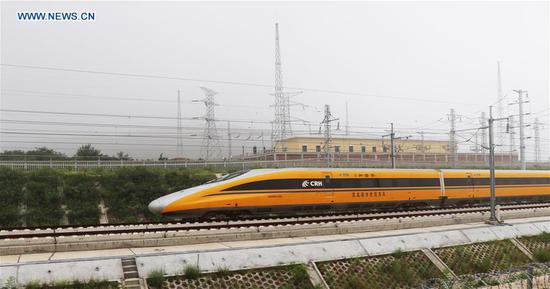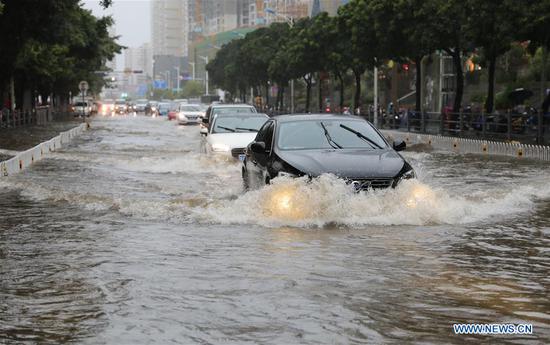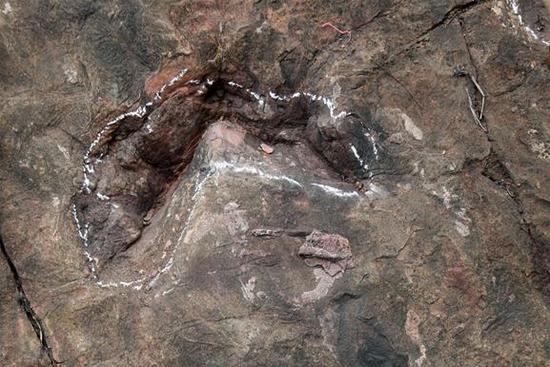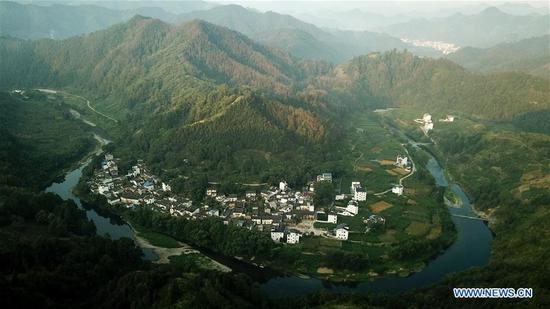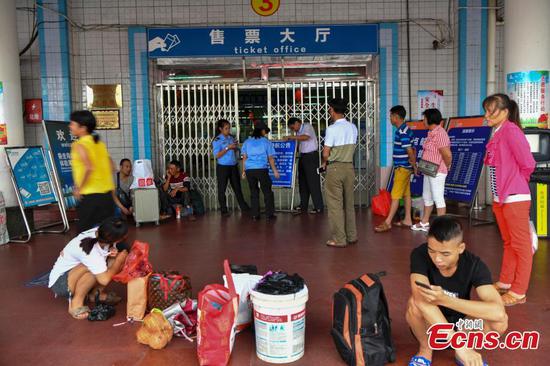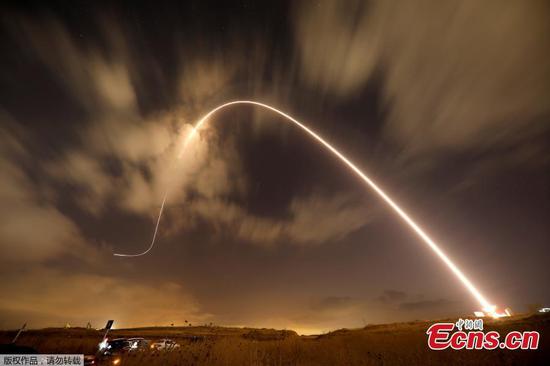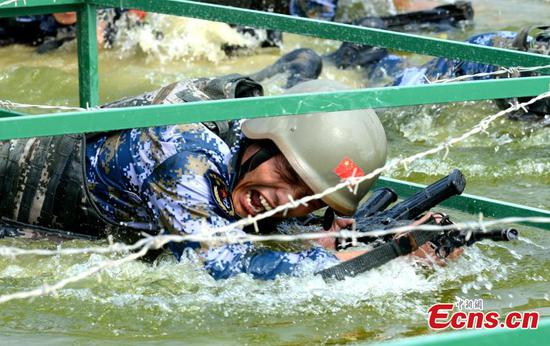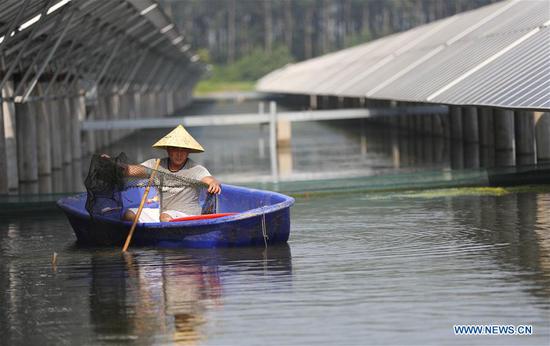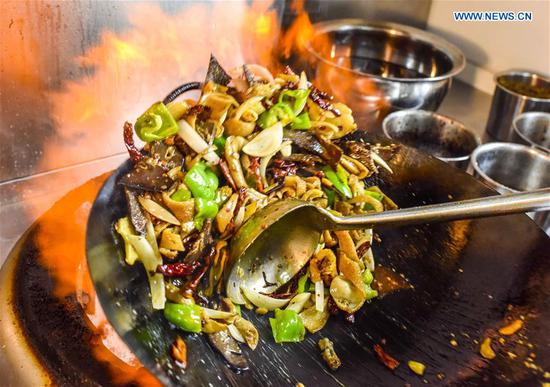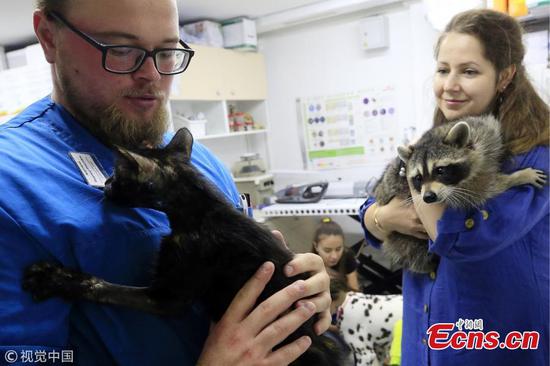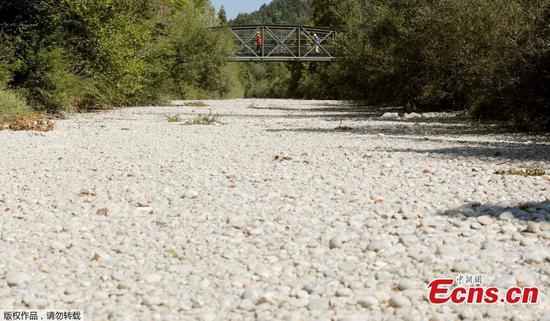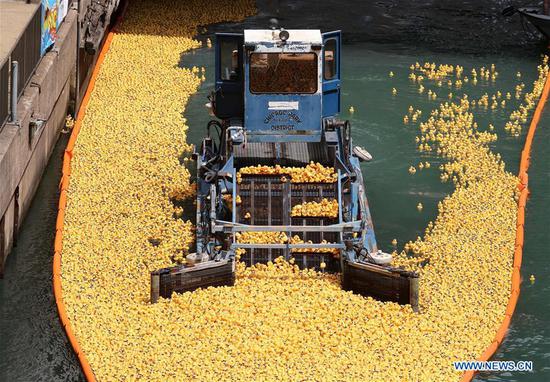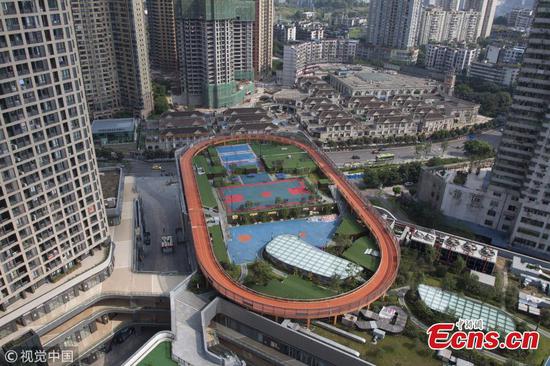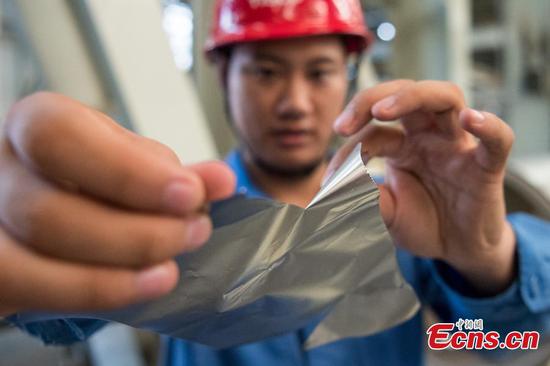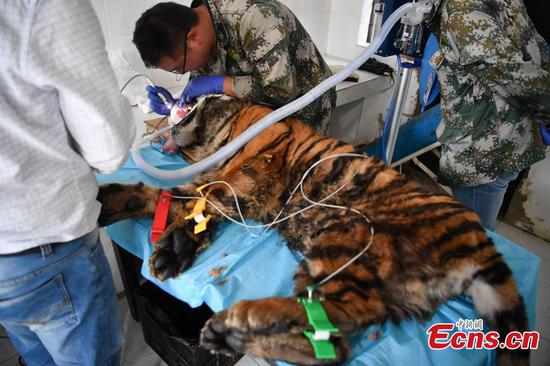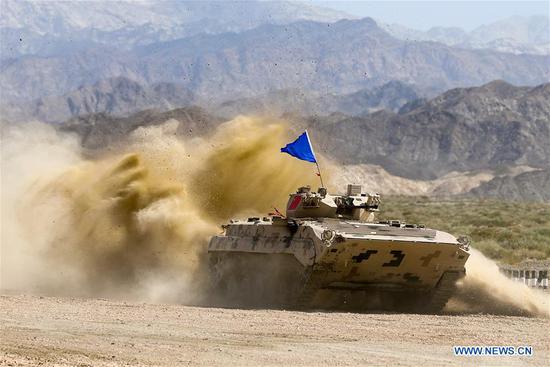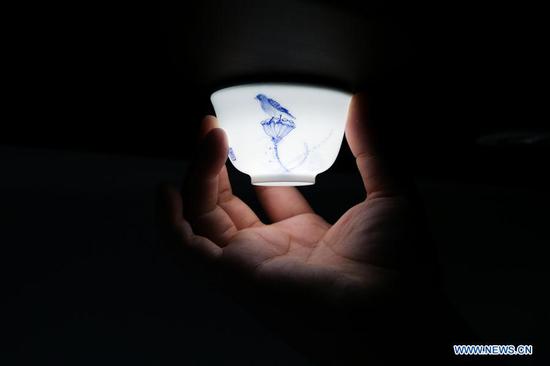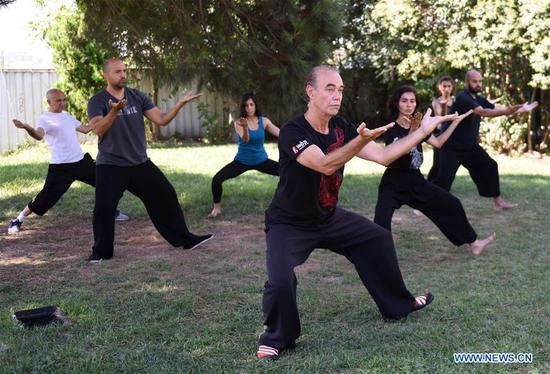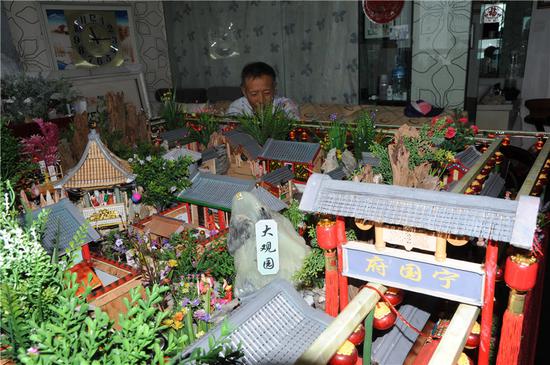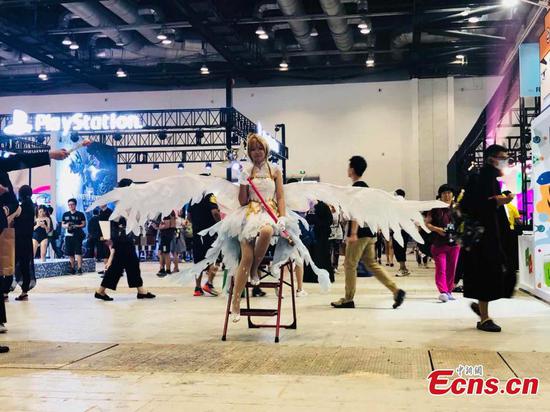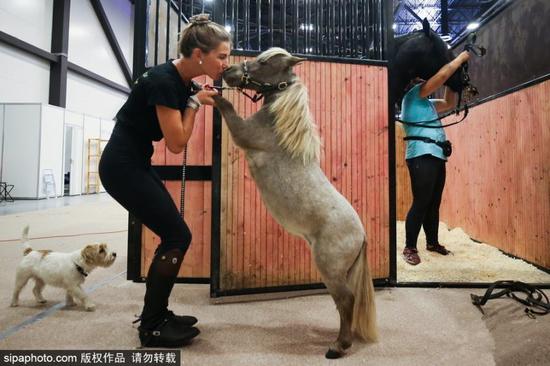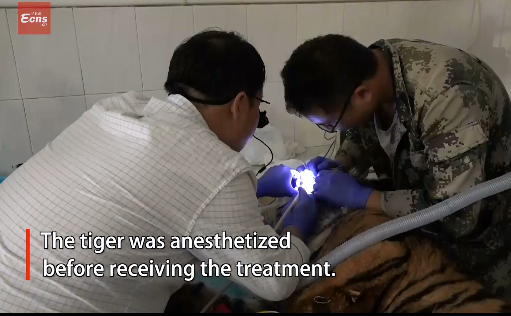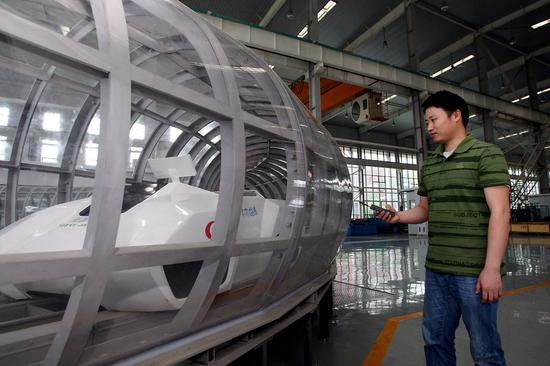
Deng Zigang, a professor from Southwest Jiaotong University, tests an ultra-high-speed high-temperature superconductor maglev. (Photo/CHINA DAILY)
Hyperloop system aims to reach speeds of up to 1,500 km/h
It takes several hours to travel by car from Hollywood to the Napa Valley in Northern California, considered one of the world's premier wine regions.
But if the dream of business magnate and Tesla CEO Elon Musk is realized, travel time between Los Angeles and San Francisco — which is beside wine county — will be reduced to just 35 minutes.
Musk wants to build a hyperloop rail system that would operate at a top speed of 1,200 kilometers per hour.
Ambitious as this project is, Chinese scientists are planning an ultrafast rail transportation system of their own that would run at up to 1,500 km/h.
This would make it possible to enjoy wine in the Napa Valley at midday and, for example, watch a baseball game just three hours later in New York City.
Zhang Weihua and his team at Southwest Jiaotong University in Chengdu, capital of Sichuan province, are building a high-tech tube transportation system to test methods of carrying commuters and cargo at ultrafast speeds. This will be tested at speeds of up to 1,500 km/h. The top speed is expected to be reached in April 2021.
The hyperloop idea was first proposed by Musk in 2013, but was met with a mix of enthusiasm and skepticism.
Unlike ordinary trains and tracks exposed to the atmosphere, trains operating on this system would run inside a partial vacuum. The prototype loop can raise a train above ground and enable it to run inside the tube without air resistance.
Other countries, such as France and Japan, are also speeding up their research on ultrafast trains.
"Speed has become the focus of competition," Zhang said.
Once it has been completed — in less than three years according to Zhang — all types of ultra-high-speed maglev transportation tests can be carried out, including those on high- and low-temperature superconductor maglevs.
A prototype was built to one-tenth the scale of the proposed train, he said.









